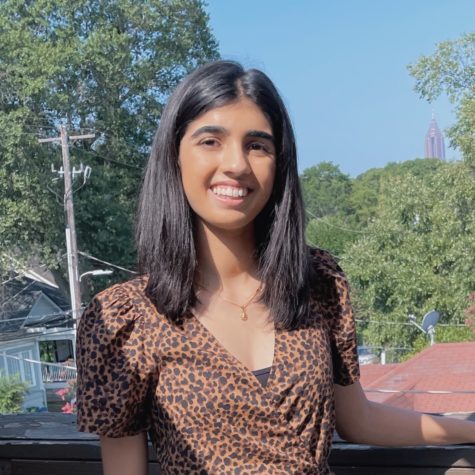Lakhiani: Environmentalism needs to consider minority and low-income communities
April 23, 2021
When it comes to the environment and climate change, all I can think about is our impending doom. If substantial changes aren’t made immediately, then our Earth will suffer irreversible damages. However, there is still hope in organizations and people who are fighting for that substantial change. In spite of increased support, the environmental movement is one that has neglected, and still continues to neglect Black, Indigenous and people of color (BIPOC) communities, despite being the ones who are affected most by environmental injustices.
Contributors to pollution––including manufacturing factories and other large industries––are predominantly built near low-income neighborhoods, which consequently suffer cardiovascular and respiratory effects. For example, the Los Angeles City Energy Recovery Project (LANCER) proposed that a waste incinerator be installed in South Central Los Angeles which would have “contaminate[d] the air, water, and land of the people who live in South Central Los Angeles.”
Two residents who lived in the low-income, African-American community banded together and after many obstacles, were finally able to prevent the construction of the waste incinerator. However, it was clear that officials meant to build this machine near a community who they thought would not have the resources or knowledge to fight back. While the construction of this particular incinerator was stopped, other communities might not have the ability to stop environmental harm towards their neighborhood.
These projects, which target low income and communities of color, should be at the center of the environmental movement. Instead, much of the mainstream environmentalism prevalent today comes from a very privileged perspective. For instance, the pressure to stop using plastic straws, become vegan/vegetarian, not participate in fast fashion and so forth comes from a place of privilege. While these are good ideas to help with the environment, not everyone has the ability to do these things.
Residents living in communities with food deserts don’t have the option to be vegan/vegetarian because of the higher costs and lack of accessibility of nutritious food. Because of their inability to take these actions, mainstream environmentalism often ignores minority and low-income voices, while looking down upon and ignoring these individuals when they try to speak up about issues within their communities.
Moreover, the responsibility of fixing the environment shouldn’t rest solely on the individual; big corporations—the major contributors to climate change—need to make substantial changes that don’t rely on cheap and toxic labor, space or opportunities. These large corporations need to also stop building environmental polluters that affect the lives and health of BIPOC and low-income communities.
As an expert in environmental studies, Giovanna Di Chiro points out that while mainstream environmentalism has tended to be “fixated on anti-urban development campaigns (read as ‘no jobs for city-dwelling people’),” there has been a recent shift towards environmental justice, which intertwines social justice issues and includes minorities and low-income communities.
There even are “Principles of Environmental Justice” that were created by participants from the People of Color Environmental Leadership Summit, who come from diverse backgrounds.
Environmental justice is a term coined to include the minority voice; and while the movement is becoming more known, mainstream environmentalism remains more prominent in our lives. Movements like “Save the turtles” or shopping sustainably are messages that are promoted all over social media, meanwhile environmental injustices, such as LANCER, are able to escape accountability because these communities are ignored. Environmental injustices are intertwined with environmental racism, which becomes evident when minority communities are the ones who are most affected by disruptions to the environment, but people aren’t speaking up about it.
Climate change affects us all in the long run, but at the moment, minority and low-income communities are suffering the immediate consequences. We need to bring more awareness to environmental justice over mainstream environmentalism. By bringing these issues to the forefront of the environmental movement, we can ensure that more substantial change can be done to fix and prevent further damage to minority and low-income communities.



